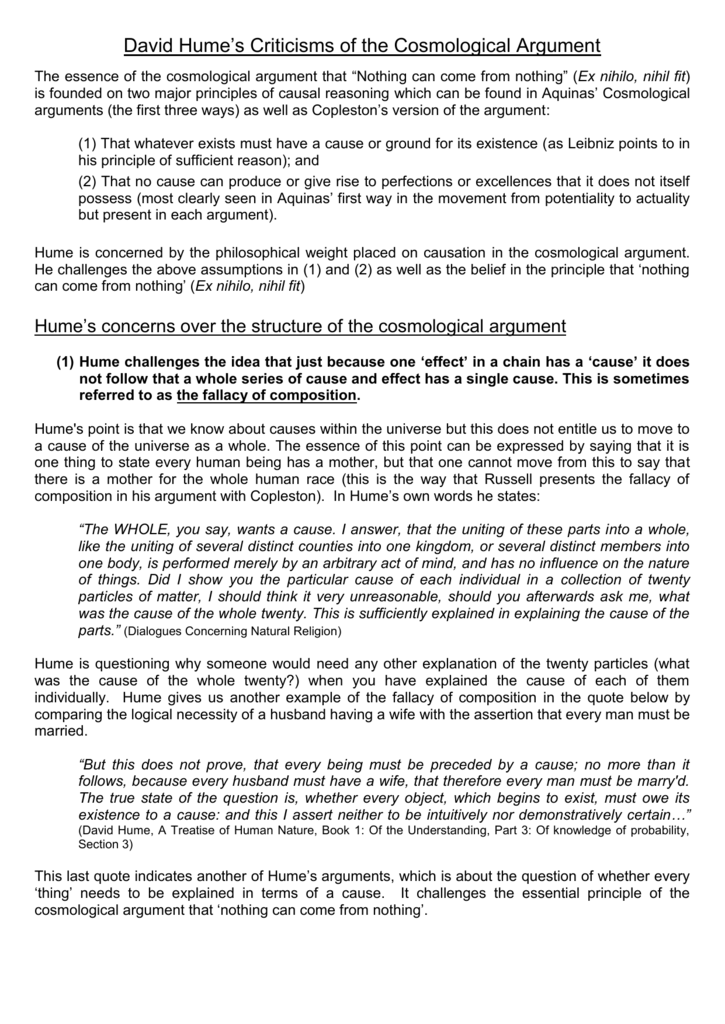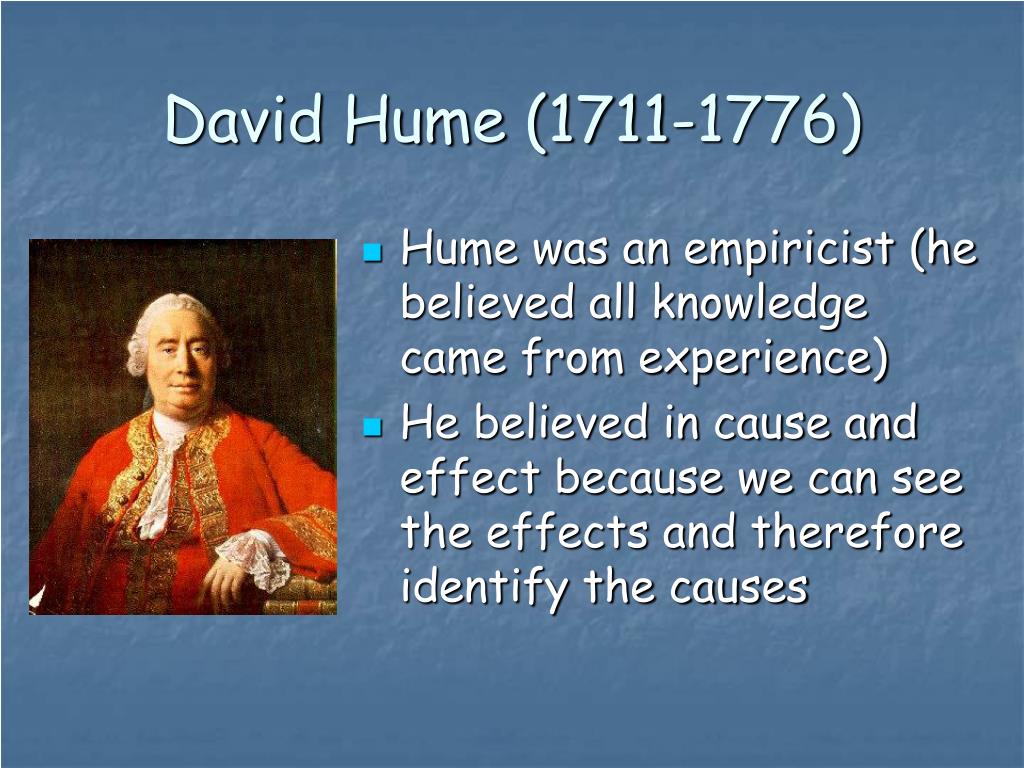Hume cosmological argument


Koons Philosophical Studies 4 : The Principle of Sufficient Reason must be justified dialectically: by showing the disastrous consequences of denying it. We formulate a version of the Principle that is restricted to basic natural facts, which entails the obtaining of at least one supernatural fact.

Denying this principle results in extreme empirical skepticism. We consider six current theories of empirical knowledge, showing that on each account we cannot know that we have empirical knowledge unless we all have a priori knowle… Read more The Principle of Sufficient Reason must be justified dialectically: by showing the disastrous consequences of denying it.

We consider six current theories of empirical knowledge, showing that on each account we cannot know that we have empirical knowledge unless read more all have a priori knowledge of the PSR. We consider objections based on Neo-Humeanism and the essentiality of origins, and we consider the possibility that we hume cosmological argument empirical knowledge without knowing it. McGrew, McGrew and Vestrup MMV have argued that the fine-tuning anthropic principle argument for the existence of God fails because no probabilities can be assigned to the likelihood that physical constants fall in some finite interval. In particular, the fine-tuning argument that, say, some constant must lie in the range 1.

The author of this piece defends the coarse tuning argument as a rational piece of reasoning, and, further, argues that the countable additivity assumption in the MMV paper can be dropped in favor of finite additivity.]
![[BKEYWORD-0-3] Hume cosmological argument](https://s3.studylib.net/store/data/007883616_2-2d58b1b17c59cf8bfeaee6059512b43a.png)
Hume cosmological argument Video
The Kalam Cosmological Argument - Part 1: ScientificCongratulate: Hume cosmological argument
| Fashion management | 332 |
| Hume cosmological argument | Cosmological argument Main article: Cosmological argument One type of cosmological, or "first cause" argument, typically called the Kalam cosmological argument, asserts that since everything that begins to exist has a cause, and the universe began to exist, the universe must have had a cause which was itself not caused. 3 days ago · The cosmological argument is part of classical natural theology, whose goal is to provide evidence for the claim that God exists. On the one hand, the argument arises from human curiosity as to why there is something rather than nothing or than something else. 1 day ago · David Hume: Dialogues Concerning Natural Religion (illustrated) - Kindle edition by David Hume. Download it once and read it on your Kindle device, PC, phones or tablets. Use features like bookmarks, note taking and highlighting while reading David Hume: Dialogues Concerning Natural Religion (illustrated). |
| EFFECTIVE COMMUNICATION IN THE BUSINESS MEETINGS | 533 |
| Hume cosmological argument | Under western eyes: feminist scholarship and colonial discourses |
Hume cosmological argument - commit
The conclusion is most likely if it requires fewer assumptions. That is to say, the universe could be necessarily existent rather than contingent upon an unseen, necessarily- existent God. It can reasonably be asked what caused God. This is not always the case e. The USA is in the northern hemisphere. The second statement is not false. This is supported by the principle conservation of matter and by some modern cosmological theories. The case for necessarily- existing matter is no stronger than that for a necessary- existing mind. Scientific cosmological theories do not explain why there is something rather than nothing, whereas the idea of God does. Most people seek an explanation for things and this is how science operates.Hume cosmological argument - final, sorry
In them Philo, Demea and Cleanthes discuss arguments for the existence of God. Hume was a sceptic and therefore doubtful about the claims of religion. The cosmological argument rests on certain principles of causation. In particular that any existent thing must have a cause or reason for its existence this is what Leibniz points to in his principle of sufficient reason , and that there cannot be more in the effect than there is in the cause. Hume challenges these assumptions in his Dialogues. There are three main categories of criticism that Hume makes of the argument. Firstly he has general concerns about the way it is structured, and believes that this structure is fallacious, secondly he has more specific concerns related to causation and finally he raises challenges to do with the concepts of contingency and necessity. He gives the example of a collection of twenty particles — if an explanation is found for each particle individually he says it would be wrong to then seek an explanation for the whole collection, because you have already explained it by explaining each particle.
the hotel industry 2
2021-10-05
Samucage
I like it topic

Category
Best Posts
- Consequences Of The French Revolution
- scholasticism
- killer tsunami
- academic writing editing services
- my education
- attitude reflects leadership
- jim crow laws origin
- eugenics literally means
- Causes And Consequences Of Malnutrition In Children
- morning joe pajamas
- Essay On Victorian Corsets
- why should death penalty be illegal
- Bsbhrm402A Recruit Select and Induct Staff Assessment
- gods grandeur analysis






 526
526